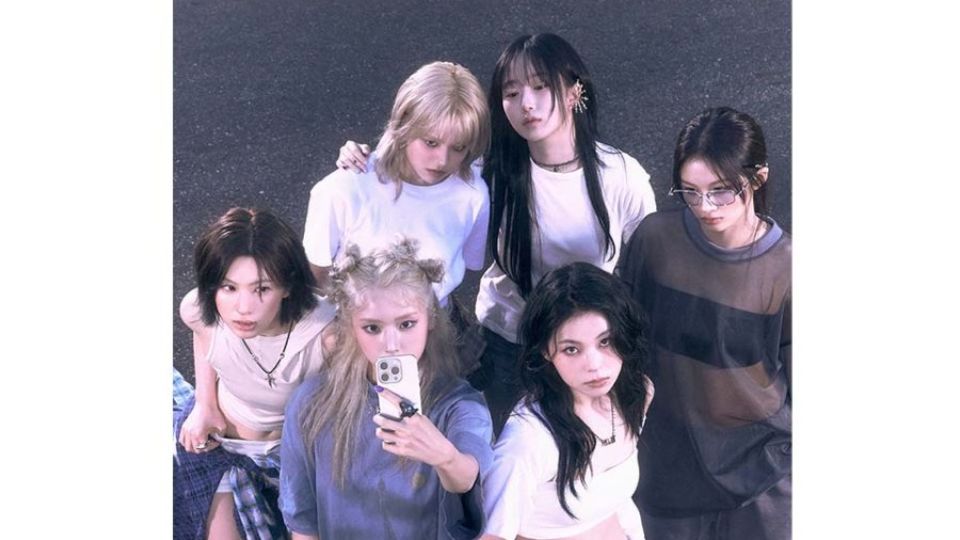September 3, 2024
SEOUL – K-pop idols continue to grapple with navigating geopolitical controversies, as highlighted by a recent incident involving JYP Entertainment’s K-pop group Nmixx.
The group performed part of “Dokdo is Our Land” song in a YouTube video on Aug. 22, sparking a heated dispute between Korean and Japanese fans. The incident raised a critical question: Should K-pop bands refrain from addressing political issues, or should they be candid about their political positions?
Japan has claimed sovereignty over Dokdo, islets in the East Sea, since the early 20th century. It is taboo for K-pop idols to speak about Dokdo as Korea holds sovereignty over the islets, but Japan continues to claim the territory, and K-pop groups promote in both countries.
Nmixx did not make a bold statement on the issue, nor did they choose to perform “Dokdo is Our Land” on their own. The group sang a portion of the song as part of a mix-pop medley that included three other songs, a decision made by the content producer.
Japanese fans, however, went on to express their dissatisfaction on the girl band’s X account last Friday, posting comments such as “Don’t they care about Japanese fans?” “I regret spending money on Nmixx,” and “The company (JYP) needs to provide history education.”
Korean fans countered with comments such as, “Japanese fans need to relearn history,” “Is this really something to argue about?” and “There have been many artists who have tiptoed around Japanese sensitivities, but a true K-pop artist naturally sings ‘Dokdo is Our Land.’” This exchange has escalated into a heated debate between fans from both countries.
JYP Entertainment declined to comment on the issue.
BTS was also previously caught up in Korean-Japan related controversies.
In July, a Japanese right-wing media outlet used an edited video clip from SBS’s 2013 entertainment show to falsely claim that “BTS’s leader (RM) was wearing comfort women’s clothing and argued that Takeshima is Korean territory.” In the video, RM sang “Dokdo is Our Land” while dressed in a hanbok, a traditional Korean garment. Additionally, in 2018, BTS’s Jimin faced backlash in Japan after wearing a Liberation Day commemorative T-shirt, leading to the cancellation of his appearance on a Japanese TV show.

Nmixx sings “Dokdo is Our Land” in a YouTube video released on Aug. 22. PHOTO: YOUTUBE/THE KOREA HERALD
K-pop agencies believe it is inappropriate for K-pop idols, whose professionalism lies in performing music, to stir controversy in areas outside their expertise.
They also train their singers to avoid making political statements because perspectives on such issues vary widely across different countries.
“Culture exists in a different realm from politics, which is why K-pop singers typically choose not to comment on such matters. Especially as K-pop goes global, and considering that many idols are still young, any remarks they make outside of music can easily become controversial,” a local entertainment official said Monday.
This dilemma is compounded by the double standard often held by K-pop fans regarding social-political issues. While idols are encouraged to support movements like the fight against racism, they are expected to remain silent on issues that conflict with national interests.
“Regarding political issues between Japan, China and Korea, K-pop artists are often expected to ‘remain silent.’ There have been instances where Chinese K-pop singers (such as Lay of EXO, Jackson Wang of GOT7, and former f(x) member Victoria) supported the “One China” policy, sparking controversy in Korea. Similarly, political conflicts between Japan and Korea, particularly over issues like Dokdo, continue to lead to problems,” Professor Lee Jong-im of Seoul National University of Science & Technology said Monday.
However, Lee also noted that political issues raised against K-pop singers are often driven by ultra-right-wing Japanese fans.
“In similar past incidents, many Japanese fans have stated in interviews that they separate their fandom from political issues. I believe that the majority of Japanese fans are not criticizing Nmixx,” Lee added.


